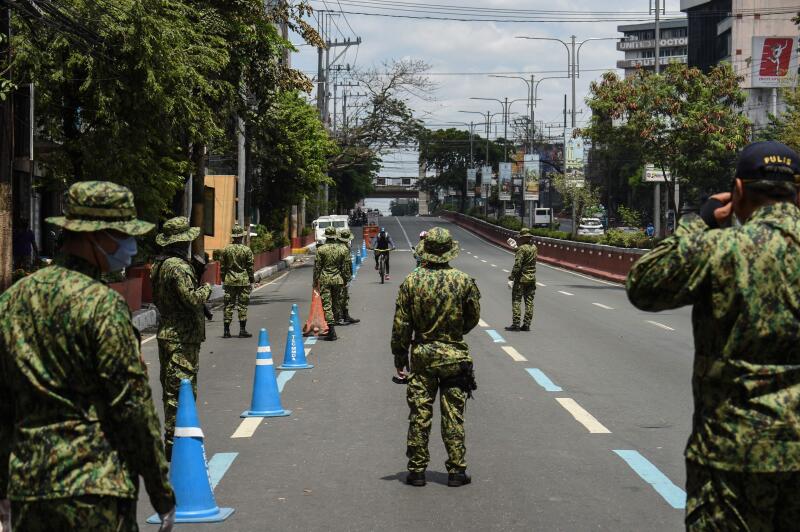Philippine Congress passes anti-terror Bill to beef up police powers; critics say it can be used to target detractors
Sign up now: Get insights on Asia's fast-moving developments

The law authorises the government to wiretap suspects, arrest them without warrants and hold them without charge for 14 days.
PHOTO: AFP
Follow topic:
MANILA - Philippine lawmakers on Wednesday (June 3) passed a controversial "anti-terror" Bill that they say is meant to rein in terrorists and communist insurgents, but which civil rights activists insist will unleash draconian measures on government critics.
Voting by 173-31 in favour, the House of Representatives approved the proposed law that expands the definition of terrorism and bolsters police powers of surveillance, arrest and detention.
House Bill 6875 repeals the Human Security Act of 2007.
President Rodrigo Duterte is expected to sign a consolidated version of the Bill and a similar measure earlier approved by the Senate as the Anti-Terrorism Act of 2020.
The proposed law authorises the government to wiretap suspects, arrest them without warrants and hold them without charge for 14 days, among other provisions.
Mr Duterte's spokesman Harry Roque said earlier in the day that unless there was a "clear and present danger", the anti-terror Bill could not be used against the opposition, leftist groups and the government's other detractors.
"Whatever law cannot be used to curtail freedom of speech unless the government can show that there is a clear and present danger. If there is no clear and present danger, you know that here in the Philippines, we are used to it, you can say anything and everything," said Mr Roque.
Senate President Vicente Sotto said "only terrorists and their supporters need to fear this law".
"It has a lot of safeguards. Terrorism, as defined, does not include advocacies, protests, dissent, industrial strikes, mass actions and other exercises of civil and political rights. That is very clear," he said.
But the Commission on Human Rights warned that the Bill passed by Congress "paves the road for possible abuse, as it tends to blur the distinction between terroristic activities and ordinary crimes".
The commission's spokesman Jacqueline de Guia said it could be "used to limit substantial freedoms, including expression of dissent and critical perspectives, most especially by civil society and human rights groups, under a democracy".
The Concerned Lawyers for Civil Liberties group said the anti-terror Bill "gives the government almost free rein in determining who are 'suspected terrorists'".
Human rights lawyer Chel Diokno said because the Bill's definition of "terrorism" is "poorly worded" and "imprecise", the government can label striking workers of utility firms as "terrorists".
He said that it could ultimately be used to suppress free speech and harass those who challenge Mr Duterte, who has drawn international criticism for his bloody war on drugs that has claimed thousands of lives, and his human rights record.

